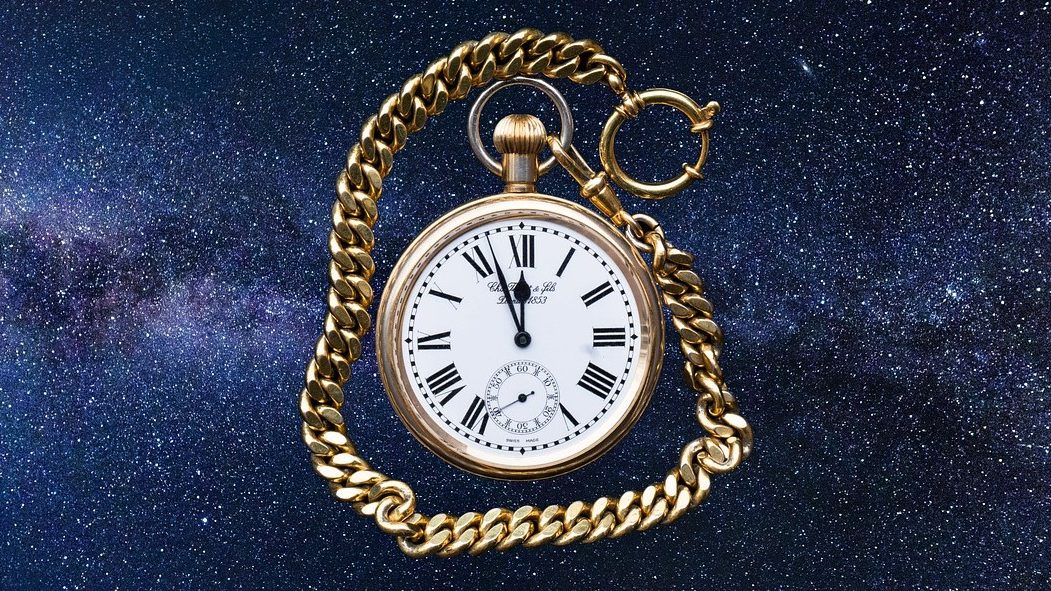
Description
Deism gained prominence during the Enlightenment, and was popular among political intellectuals like the U.S. founding fathers. The basic idea is that God exists, but is not responsible for any revelation beyond nature. We can safely categorize deist beliefs into two buckets. “Watchmaker deism” argues for an uninvolved God. He made the universe, then turned His back on it and let it run. “Providential deism” – which seems to be the true enlightenment position – argues for a God who is involved, but has not communicated through special, binding, miraculous revelation. We will discuss how both of these views collapse in on themselves.
YouTube video presentation of this argument here.
Watchmaker Deism
The problems with watchmaker deism are numerous.
First, the most compelling arguments for God’s existence are compelling precisely because they prove God is necessary right now. Take St. Thomas’ “second way” for example. He argues there are simultaneous causal regressions: you are caused by your organs, they are caused by cells, they are caused by molecules, and so on. But if every step of the regression relied on another step, then nothing would have causal power at all. If you had a TV plugged into an infinite series of power strips, it would never turn on. So caused-causers must terminate in an uncaused-causer, and he goes on to prove this must be God. Without an argument like this proposing the universe’s ongoing dependence on God’s intervention, it’s unclear why He is even needed. If the universe is capable of self-regulating and self-sustaining, couldn’t it just do that without God in the first place?
The watchmaker deist is thus put in a position where they need to justify God’s existence without necessitating His ongoing creative act. Typically, they will try to do this through the fine-tuning argument or the moral argument. But these are similarly self-contradictory. How can the deist profess that God has no intention for the universe while believing in God because the universe exhibits signs of intentionality? If God is rational, then the universe must have some purpose, since a rational agent always wills the end before the means. But this would mean watchmaker deism is false. On the other hand, if God is irrational, then apparent intentionality exists in spite of Him, not because of Him. But this would render God bereft of any explanatory power at all. Either way, watchmaker deism lacks justification.
Providential Deism
Providential deism is belief in a God who is involved in the universe, but has not produced miraculous revelation. Today, this often manifests in “moralistic therapeutic deism” – a belief which essentially consists of a pluralistic nice-guy God with vague, lax moral expectations who mainly wants you to succeed, be happy, not hurt anyone, and go to Heaven. Most MTD’s nominally belong to a religious tradition (think Christmas-Easter Christians). However, members of certain groups, such as the freemasons, may explicitly define themselves as deists and hold Enlightenment-consistent beliefs. In any case, Providential Deism taken to its logical conclusion becomes just as absurd as watchmaker deism.
Consider the human race. Every culture in human history has had a preeminent religion or spirituality. Humans have an innate desire for purpose, social cohesion, and moral order. Worship is an integral part of the human experience. Some might argue this point, imagining candles in a church, but worship does not have to be formal to be worship. In the absence of divinity, men will worship ancestors, nature, money, pleasure, athletes, politicians – anything. But they will worship.
So the Providential Deist must admit that God made human nature for a reason, admit that human nature cries out for meaning and worship, but then claim that He didn’t bother to give us any explicit means to satisfy these needs healthily. Often the deist will claim there is some sort of generic, universal worship humans have lost to corrupt religious institutions. But this is, frankly, more absurd than the flat earth theory. Left to our own devices, humans invent wildly different forms of worship, and the only things they have in common historically are brutality and polytheism – not 21st century humanistic deism. Ritual rape, human sacrifice, infanticide, ritual torture, cannibalism; Zeus, Krishna, Mars, Ra, Huitzilopochtli. Contrary to the pagan era ending due to some deistic enlightenment, the thing which eliminated these abhorrent practices and popularized monotheism was the Catholic Church – a religious institution!
In fact, anything the deist would consider worthy to be part of this so-called universal religion – unity, mercy, human rights, respect for the marginalized – were all practically nonexistent prior to institutional monotheistic religion. If the evidence suggests anything, it is not that atomized humans have an innate capacity to worship God well. It’s that atomized humans need to be saved from the worship they concoct! If this is the case – and I see no way to argue it – man is in desperate need of organized religion.
Of course, organized monotheistic religion did not exist throughout all of human history, a fact the religious must admit. A deist might take the opportunity to contend that we are still waiting for the true religion now. But this is just rationalizing. First, it is perfectly sensible that God would wait to establish such a religion until the conditions were amicable. A cross-regional religion with a central authority structure would not have been possible during, say, the early Ancient Age. Second, massively influential, organized monotheistic religions exist right now, have for thousands of years, have already achieved numerous goals the deists would generally predicate of true religion (such as spreading monotheism and moral values like human rights), and haven’t seen any new contenders in a very, very long time. So it seems we have nothing but good reasons to think true religion is already here.
Conclusion
Watchmaker deism is caught between a rock and a hard place. Either God is coherent, and the universe must exist for a reason, or God is incoherent, and then the coherence of the universe isn’t evidence that He exists. The idea of a God who created the universe and then turned His back on it is self-contradictory.
Providential Deism, though it is at least a logical possibility, contradicts mountains of evidence. If God made humans with a thirst for the transcendent, there must be some proper or best way to express it. But the functionally infinite evidence of history shows that atomized cultures’ only universal religious traits were unutterable brutality and polytheism. Furthermore, what put an end to these practices was not some general, natural enlightenment, but organized religion. As such, the deist must surmise that some organized religion is actually true. An intellectually consistent deist should probably be exhausting themselves day and night to figure out which one. Luckily, I have an entire section of this website dedicated to different belief systems and the evidence for and against them.
A note for the seeker: although God did not give us innate knowledge of worship, He did give us reason. We should not expect a true religion to make perfect sense to us, as that presupposes we understand God. If anything is clear from history, it is that we do not understand God. The only thing we should expect of a true religion is evidence that it’s true.
